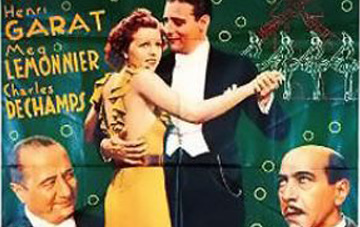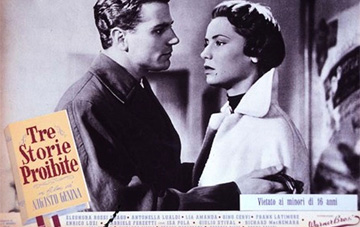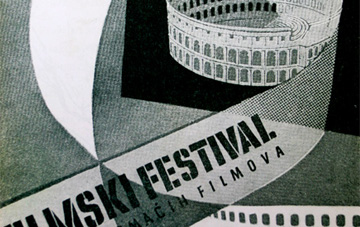Chronology of Film Festival in Pula

1938.
The first screening in the Arena takes place on June 18, 1938, presenting André Berthomieu’s film La chaste Suzanne (Italian translation Casta Susanna), starring Meg Lemonnier and Henry Garat. This was the opening film of the first film revue which ran until August 28.
This revue was ignored and completely forgotten about for decades (Miodrag Kalčić reminded about it in a text in Glas Istre from June 18, 2010) but in the context of festival’s internationalization it acquired a new meaning.
1939.
The revue of Italian and international premiere films moves to the Small Roman Theatre and after this year the project is stopped due to war.

1953.
A year before the domestic film revue in the Arena, which has been considered the first Pula Film Festival to this date, Marijan Rotar organizes a foreign film revue that runs from August 13 to 23, 1953. An extraordinary success of the international film revue (with 50.000 visitors, and the next year 37.000) establishes the Arena as an ideal location for the film festival. Rotar’s selection of films is quite interesting: out of eight originally planned screenings, half went to Hollywood, and among non-American directors appeared Kurosawa. The first picture ever to be screened in the Arena is the Italian film Three Intimate Stories. Next are the American The Great Caruso, the Japanese Rashomon, the French We Are All Murderers, the American Operation Cicero, the Italian Loves and Poisons, and the American Underwater Heroes and Captain Horatio Hornblower. The revue is prolonged for two days due to its great success – the Slovenian film Svet na Kajžarju, together with nine short cartoons, is featured on the closing night.

1954.
The first film festival is opened in the Pula Arena on June 24, 1954 – the domestic film revue.
The Slovenian film Vesna by František Čap wins the Audience Award and the Bosnian film Stojan Mutikaša by Croatian director Fedor Hanžeković the Critics’ Prize.
The first Croatian film ever to be presented in the Arena is Branko Belan’s Koncert.
Marijan Rotar serves as Festival’s director.





